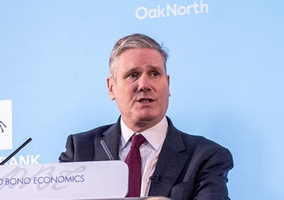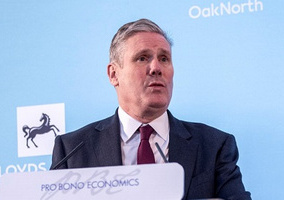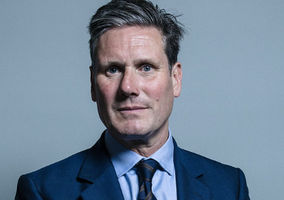It is tempting to compare the situation now with that of 1997 and to look for similar policy solutions for civil society and government relationships. Tempting but wrong. Wrong for three reasons.
Firstly, the policy leadership of the sector has more diverse voices.
Secondly, in 1997, two years had been invested by the sector in the Deakin Report which paralleled the report by Alun Michael entitled Building the Future Together. This meant that there was a strong joint agenda which created both permanent and temporary success in the first term of the incoming Labour administration. Although the sector’s influence waned as Brexit became the dominant issue. This election year, despite the recent welcome Labour interest in the sector, it is clear that they have no clear policy agenda.
Thirdly, and most significantly, the outgoing Major government had left the public finances in a reasonable state. This time it will not be the case and any public monies available are likely to be devoted to the NHS and to possible rearmament in the face of a significant threat from a resurgence of Russian expansionism. So, to put it simply, in the first term at least, the sector will need to look for relatively low-cost policies in generic areas. What might these be?
Finance
There are a number of measures which might release resources at relatively low cost. Whilst unused assets have been released and will continue to be released from the private sector there are many underutilised assets within the charitable sector.
The Charity Commission does some valuable work behind the scenes with community foundations to release some of these but we don't know much there is or where they are on a systematic basis. Perhaps a major investigation by an independent commission might be of value here.
Philanthropy itself might also be encouraged by policy changes. The culture secretary is in discussions with the Treasury to boost tax advantages for donors and simplifying the process for reclaiming tax on gifts as in the US. This initiative should be encouraged both by the sector and across political parties.
Two further initiatives might also be considered. First, an asset-based scheme which would encourage tax effective matching for particular boosts to parts of the public sector – a sort of citizens’ PFI with donations rather than private investment. Second, tax incentives for direct giving via local platforms to local projects – a citizen direct service. This would enable local giving to be linked to local projects via local giving platforms.
Finally, social investment. Again, incentives could be encouraged to encourage institutional investors to deploy their resources and national and local growth funds for private investment could be created to operate in partnership with a citizens’ PFI initiative to integrate the deployment of social investment and philanthropic giving.
Volunteering
On volunteering, three initiatives in recent years could be built on at relatively low cost. The local response to the pandemic, Helpforce and the Big Help Out.
I doubt if there has been enough analysis of the local spontaneous response to creating local resilience during the pandemic but this might help to shape local capability in the future. Helpforce has certainly begun to shape volunteering in the NHS and the Big Help Out has tapped a rich vein of volunteering.
Now is the time to bring the learning from these initiatives together and to explore the scope for increasing volunteering particularly but not exclusively in the public service and to create statutory time off for volunteering as for trade union activity and magistrates.
Institutional framework
At a macro level, government should focus on measuring and reporting on wellbeing as the principle measure of the nation’s success rather than GDP. Not only is that more sensible but it also identifies a key driver of civil society action.
It is not only the final impact of what civil society does but the intermediate impacts of how it does it that mark it out as unique and different from a consumerist model for. We are more as people than economic actors.
The regulatory environment needs to place more emphasis on enhanced public benefit to justify the special status accorded to charities together with transparency of reporting. Whilst I don't take a view on the status of think tanks, they should be required to publish a list of their donors so a more informed view can be formed of their recommendations in the public arena.
We also need to see a restoration of a high-level minister within the Cabinet Office as civil society activity transcends government departments. Government might also experiment more with citizen forums and participatory budgeting as a way of getting better informed decisions and citizens.
Perhaps there is room for one blast from the past. Compacts were useful in the early years of the last Labour government not only because they had some outcomes, for example enshrining the right to campaign irrespective of the funding relationship. But as important, negotiating them, particularly at a local level, increased the visibility of the sector.
If, of course, a new government succeeds in increasing growth and productivity and more money is available then there might be a more ambitious agenda. Others will be ready I’m sure but my top three would be: the reform of social care, the sorry state of which has caused major problems; increased investment in the sector of AI capability to reduce costs; and most ambitious, greater focus on universal basic income with a citizenship premium. But that’s perhaps for another day.
Related Articles












